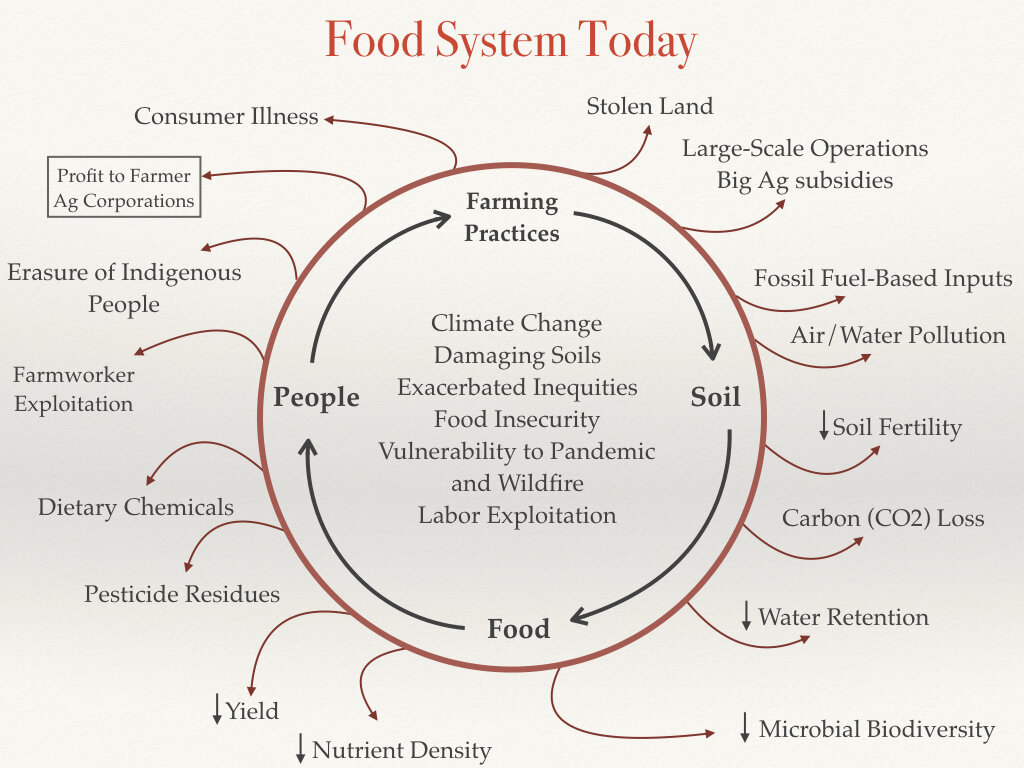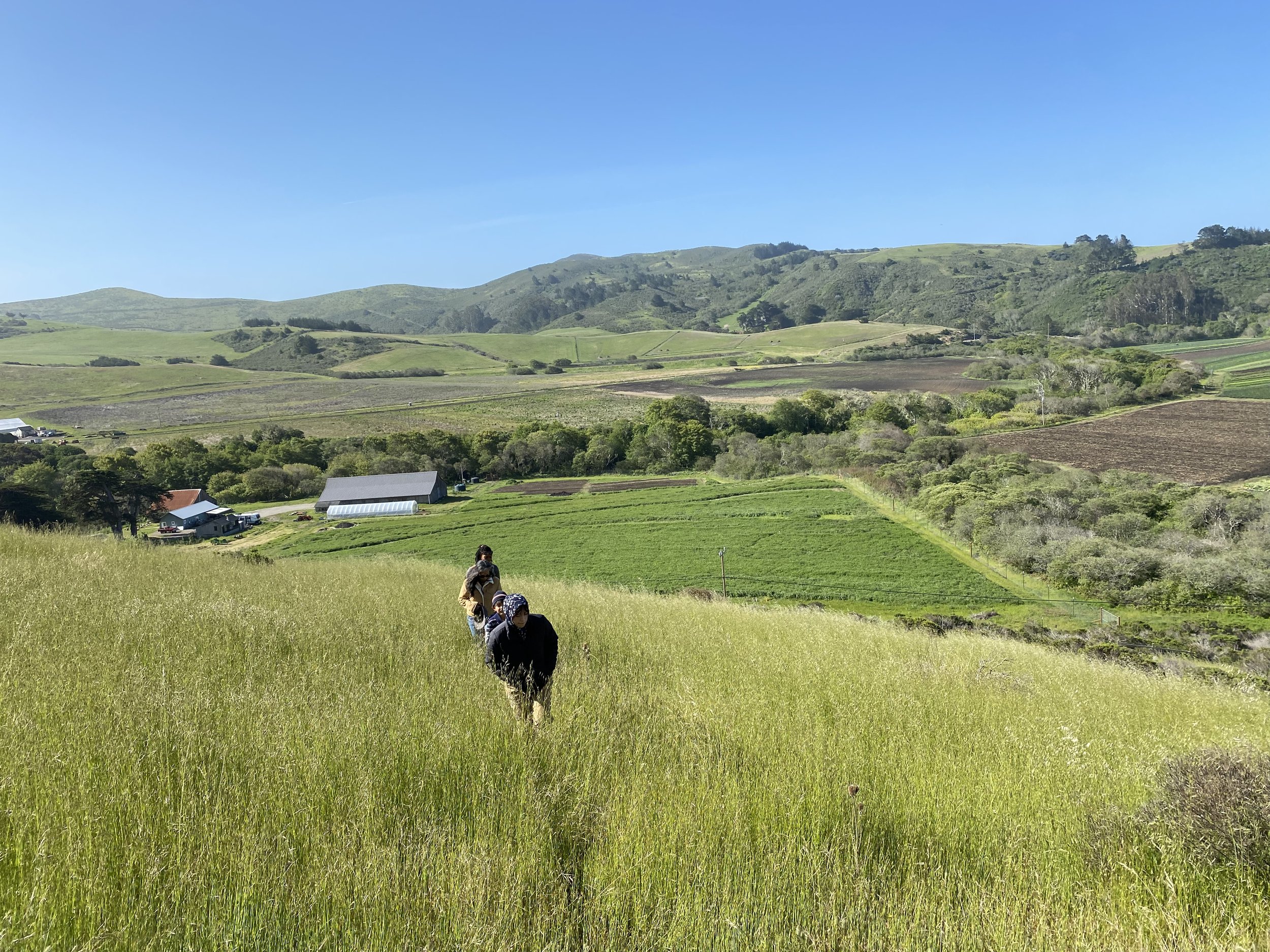
Nourish.
Farming is Medicine • Reimagining the Food System
Deep Medicine Circle advances a food system based in care. Farmers are fully supported to heal the earth and feed the people.
TheFarming is Medicine Program reframes farmers as ecological stewards whose care directly supports human and planetary health. Currently working along an urban-rural corridor in occupied, unceded Ohlone territories, this farming model brings together Indigenous Tribal Environmental Knowledge with agroecology, caring for soil, water and ecologies while growing food. Our farms include the largest rooftop farm in the West—the 1-acre Rooftop Medicine Farm in the Territory of Huichin (Oakland)—and the 38-acre Te Kwe A’naa Warep farm in Ramaytush territory, in San Gregorio, just steps away from where Portola stayed during his expedition that led to the brutal genocide of the people who inhabited the San Francisco Peninsula for thousands of years.
Both sites are staffed by farmers whose practice of caring for soil, people, seeds and water, is led and informed by people impacted by colonialism. The organic food grown through these practices are liberated from the market economy to address the manufactured crisis of hunger, which was unknown in these territories prior to colonization. Our food is distributed through area food hubs and partner organizations, including the SF Latino Task Force, Booker T Washington Community Center, the American Indian Cultural District and Tenderloin Neighborhood Development Corporation in San Francisco and UCSF Children's Hospital Oakland, POOR Magazine, Self-Help Food Program, People’s Programs, Wahpepah’s Kitchen to support their mutual aid work and Moms4Housing in Oakland.
The Rooftop Medicine Farm on top of The Logan building, in the Territory of Huichin
Currently, food offered to people impacted by hunger comes from the leftovers from commercial farming operations and ultra-processed food, which is associated with shortened lifespan. Food that is grown in soil depleted by industrial farming practices contain pesticide residues that negatively impact the human gut microbiota. Poverty disproportionately impacts people of color in the US, where society has been stratified through racial capitalism, and this impoverishment brings the highest burden of inflammatory disease. A robust and diverse gut microbiome is critical support to tamping down inflammation throughout the human body. US urban dwellers have the least biodiverse gut microbiome on planet earth. Compounding stressors such as low access to nutritious foods, trauma, exposure to pollution, lack of exposure to healthy soil microbiology, the stressors of debt and poverty, all coincide to denude the gut microbiome of poor urban people. Offering zero-barrier access to organic produce grown in healthy soil to community members oppressed by hunger brings the medicine to where it is needed most.
Farming is Medicine demonstrates how farmers are our frontline health workers—for the people and the planet. Our farmers are seed keepers, and are adapting our seeds to be ready as drought, fire and depleted soils are becoming more common challenges for the cultivation of foods. Our farmers create and enhance habitat for birds and beneficial insects, working to identify and propagate native hedgerows in our nursery, for our farms and neighboring farms interested in leaving their fossil fuel-based, chemical inputs. The soils we steward will increase in water holding capacity, carbon sequestration capacity and microbial biodiversity which improves plant health, increases nutrient density of the foods grow and counters the damage of climate change. Practices that enliven soil enliven us. Through caring for the other, our own care for self can thrive.
Nutritious food is a right, and hunger is the outcome of political choices that create poverty and the ongoing oppression of marginalized communities. By choosing instead to center acts of care and repair, we are creating an agricultural model that will simultaneously benefit personal health, ecological health and social relations, through the liberation of food from the market economy. Our farmers are educators, and we are currently preparing to accept our first cohort of trainees to disseminate these practices and prepare the next generation of agrarians in our bioregion in the Fall 2022.
The Farming is Medicine Logic Model/Theory of Change.
Land Back + Farmers as Health Stewards + Decommodified Food + Food as Medicine
DMC crew walking to get a bird’s eye view of Te Kwe A’naa Warep. We hope to welcome home Tule Elk and Beaver to the watershed.
Care for the earth. Care for the people.
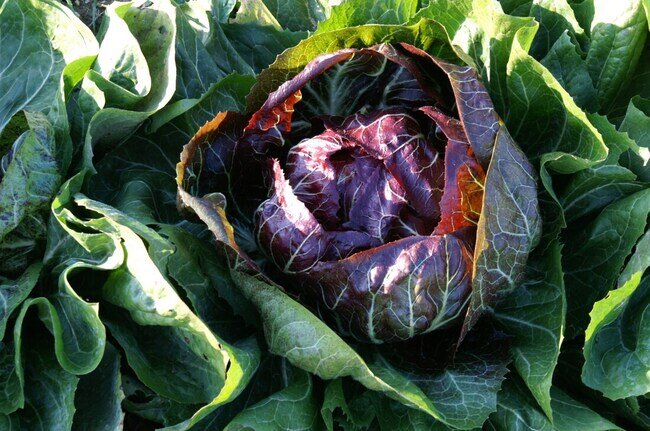

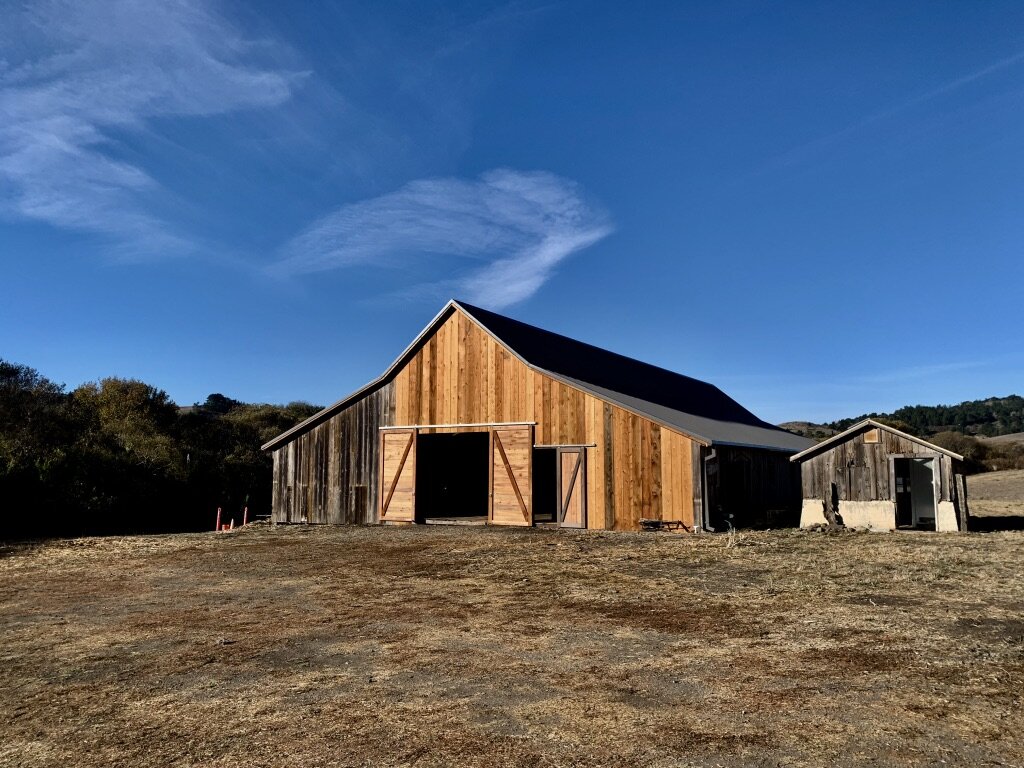

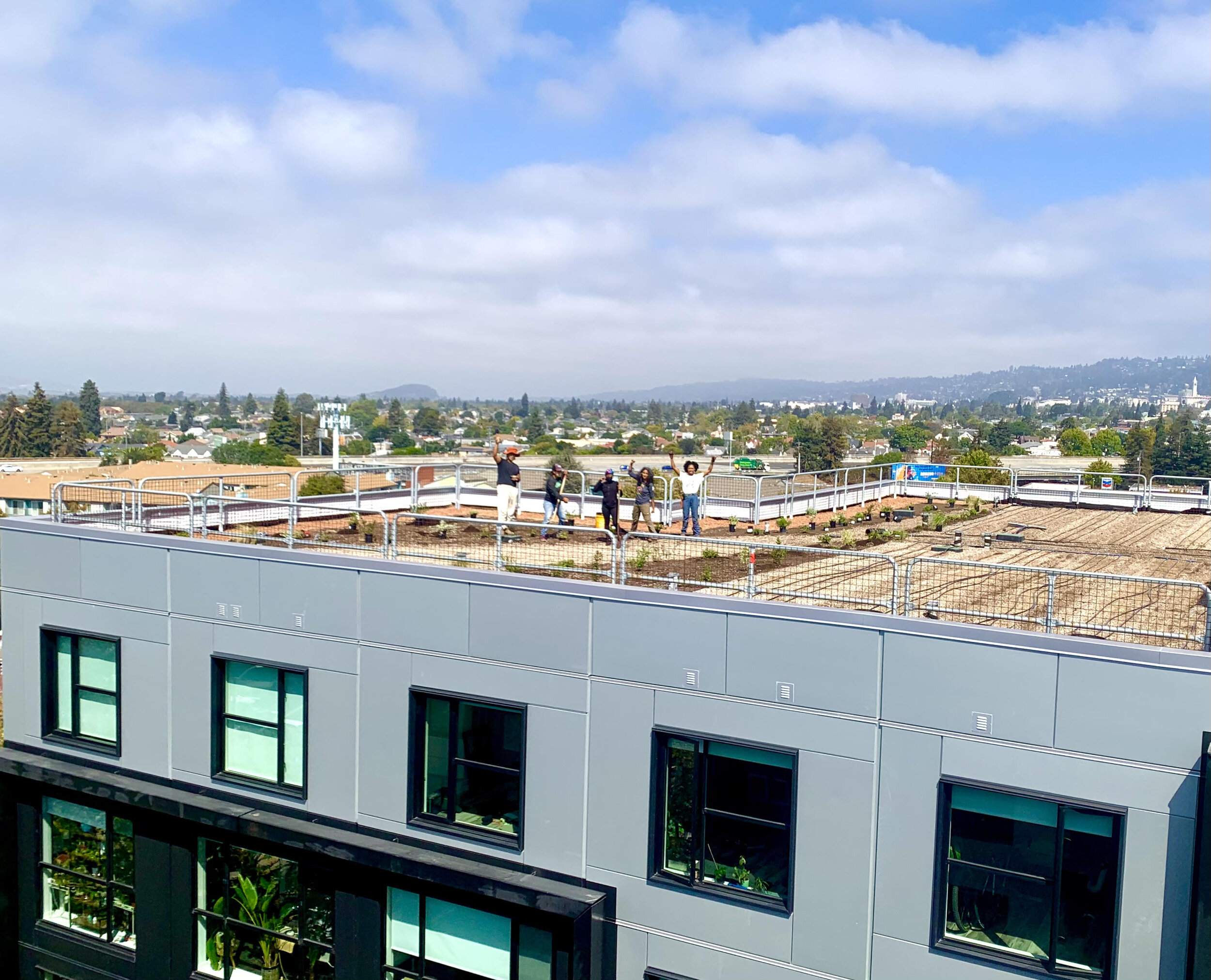
WHY is the action important?
In light of the Covid pandemic, food insecurity is becoming an increasing problem in our urban centers. This project is an emergency response that is also planting seeds for long-term community resilience. It’s also part of a much bigger vision of returning land to Indigenous communities, and working together to build a network of agroecology farms that can be proving grounds for the economic and ecological transformation, knitting back together the power of Food as Medicine.
DMC will demonstrate how this kind of small-scale farming venture can address food insecurity locally and can be scaled up by multiplying thousand-fold to meet specific regional needs.
Farming is Medicine
Physician and DMC Founder Rupa Marya gives a keynote at Ecofarm’s 2021 Conference on the connections between soil health, human health and the importance of reframing and uplifting the work of farmers in creating healthy communities.
DMC is exploring the interactions between the soil, plant and human microbiota for multi-systems approaches to health.


